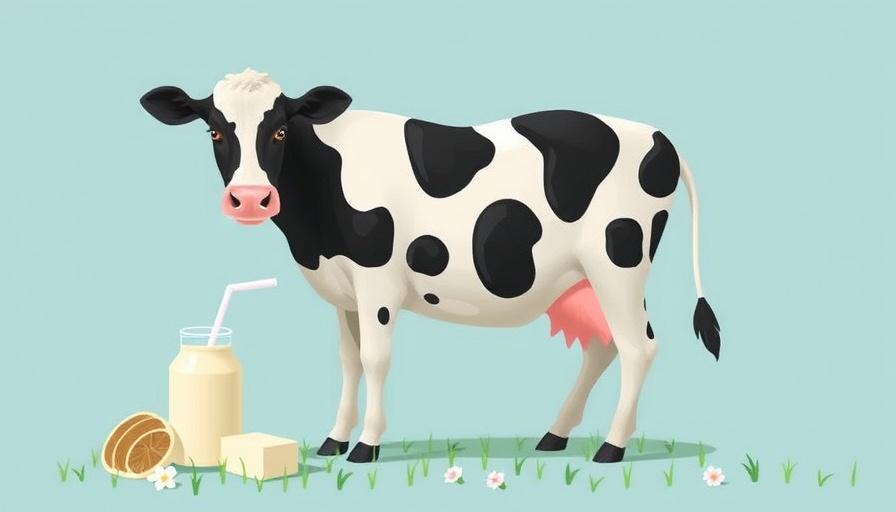
Understanding Dairy Intolerance: More Common Than You Think?
As adults, many of us encounter a common dilemma: should we drink that delicious milk, or will we pay for it later with uncomfortable digestive issues? Strikingly, recent insights suggest that occasional lactose sensitivity may not be as uncommon as we assume. But how many of us are genuinely dairy intolerant? According to Amanda Avery, an associate professor in nutrition and dietetics at the University of Nottingham, most people are not inherently intolerant to dairy products. Instead, they may experience fluctuations in their ability to digest lactose, the sugar found in milk, as they age, change diets, or experience stress.
The Lactase Enigma: Why Some of Us Struggle with Dairy
For many individuals, lactase is the hero that breaks down lactose in dairy. However, as we diversify our diets away from dairy, our bodies gradually reduce lactase production. For people from cultures with minimal dairy consumption, this can lead to a complete absence of lactase and consequently, to symptoms of intolerance. The result? Gastrointestinal distress, manifested in abdominal pain, bloating, or loose stools.
Avery notes that even those who typically digest dairy well can face temporary challenges. Gut disruptions caused by antibiotics or stress can lead to 'transient lactose intolerance.' This highlights a crucial point: while some might equate temporary discomfort with a permanent dairy intolerance, it can often be a passing phase, rather than a lifelong affliction.
Temporary vs. Permanent Intolerance: What You Need to Know
Similar to a relationship ebbing and flowing, our bodies may react differently to dairy at various life stages. For instance, if you've recently cut out dairy from your diet, reintroducing it might cause a brief spate of symptoms. Avery recommends that for those who suspect they might be intolerant, keeping some dairy in their diet could aid in maintaining lactase production. Not all dairy is created equal; the lactose content in cheese is minimal, and yogurt is often tolerated better due to its bacterial breakdown of lactose.
The key takeaway? For many, the struggle with dairy may simply be a temporary hiccup rather than a definitive intolerance. Informing yourself about how your body reacts to dairy and what you can do to ease any discomfort is a crucial part of maintaining your health.
Broader Implications for Health and Wellness
Understanding our personal relationship with dairy not only enhances our dietary experience but also ties into broader health and wellness trends. Lactose intolerance (or the perception of it) can push individuals toward dairy-free alternatives—an industry booming with products geared towards those avoiding dairy for health concerns. As consumers demand more transparency about what they consume, brands are responding accordingly with better labeling and nutritional information.
However, this shift also presents opportunities for advocacy and education. Health and wellness centers can play an essential role in helping individuals navigate dietary choices that suit their digestion and lifestyle. By offering workshops focused on nutrition, cooking classes that explore dairy alternatives, and dietary consultations, the community can benefit significantly from vital information.
Practical Tips for Navigating Dairy Consumption
If you're unsure about your dairy tolerance, consider experimenting with different products. Start small and track your body's responses. Incorporating options like fermented dairy (yogurt or kefir) can be helpful—countless people find that these products mitigate digestive discomfort.
Staying attuned to your body becomes essential. Keep track of what you consume, and you might discover patterns that illuminate your relationship with dairy. Understanding that everyone's digestive health is unique can help foster an environment of better health for ourselves and our community.
Embracing a Balanced View of Dairy
Ultimately, recognizing the complexity of our digestive systems sheds light on the concept of dairy tolerance. Instead of viewing it as an absolute yes or no question, it’s vital to appreciate the factors like age, stress levels, and dietary patterns that contribute to our digestive well-being. Broadening our perspectives about dairy can empower us to maintain a balanced diet while embracing our individual needs.
In conclusion, while societal narratives often paint lactose intolerance as a widespread issue, the nuanced reality reveals it may not be permanent for most. Detoxifying our diets from fear-based decisions and embracing personal experiences can significantly enhance our overall wellness journey.
To delve deeper into optimizing your health and wellness journey, consider connecting with a local health and wellness center that can provide personalized insights and recommendations tailored just for you.
 Add Row
Add Row  Add
Add 




 Add Row
Add Row  Add
Add 


Write A Comment